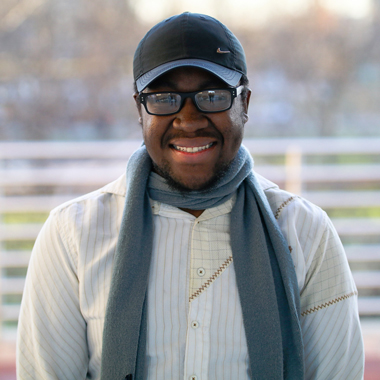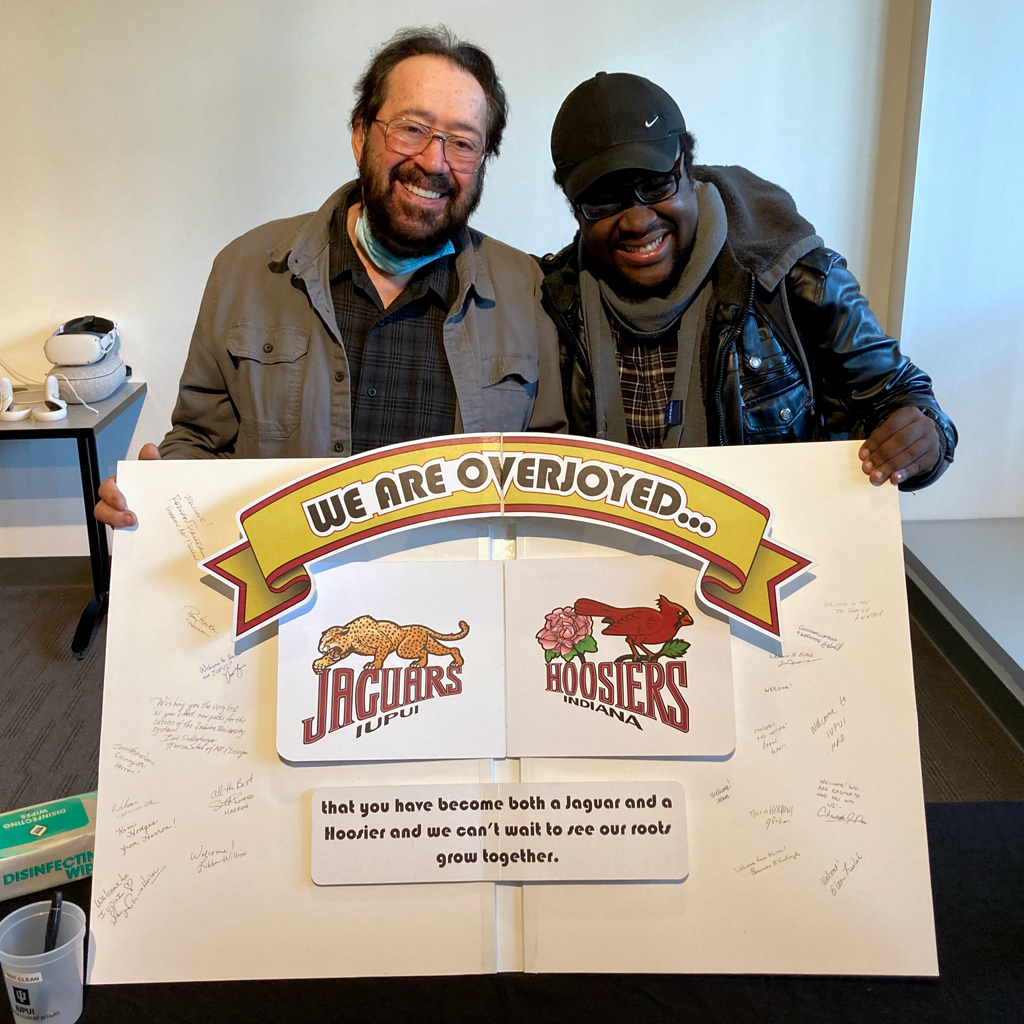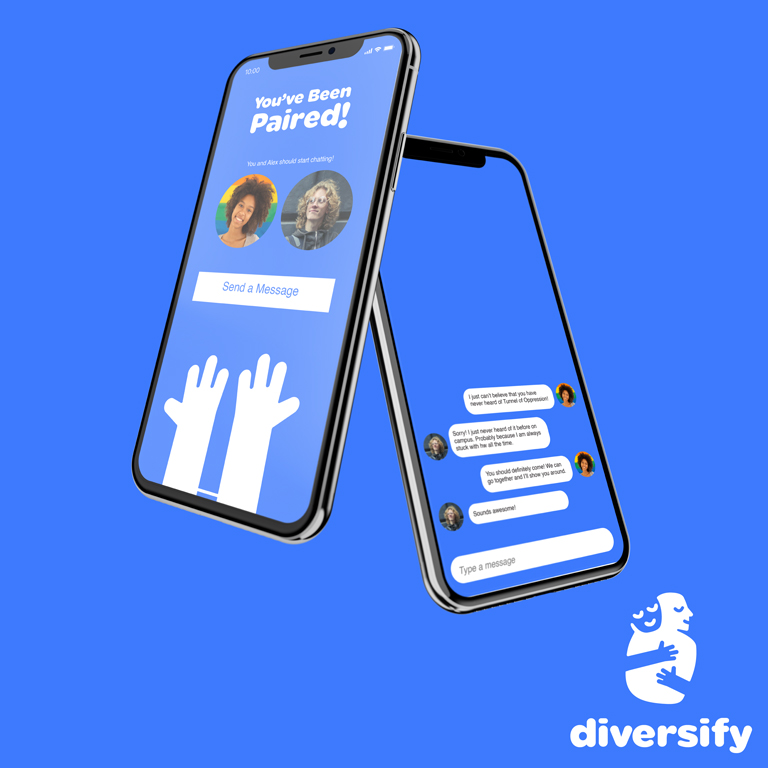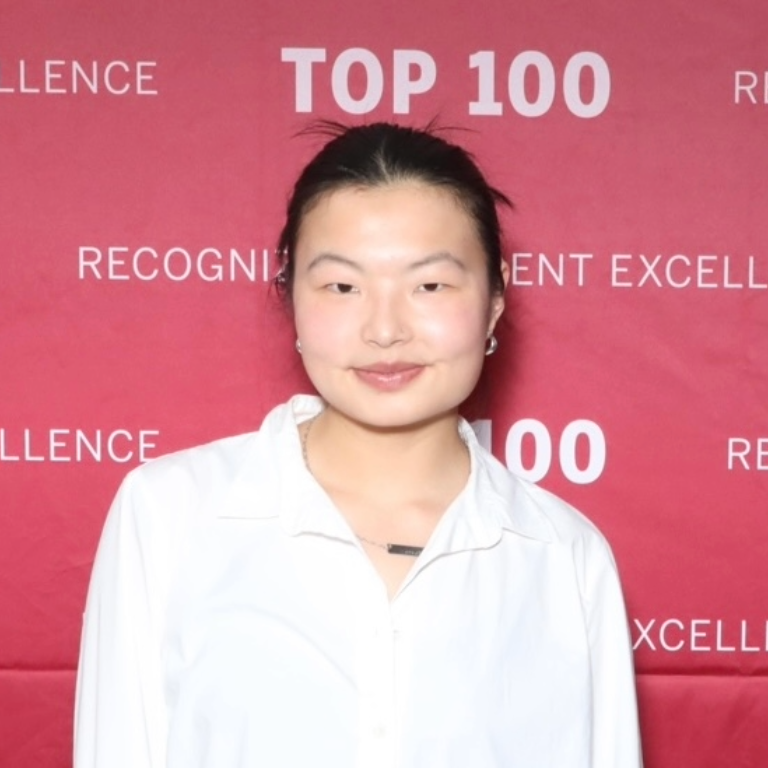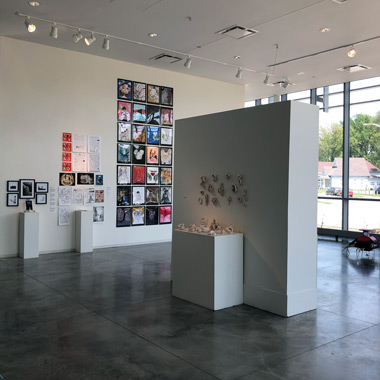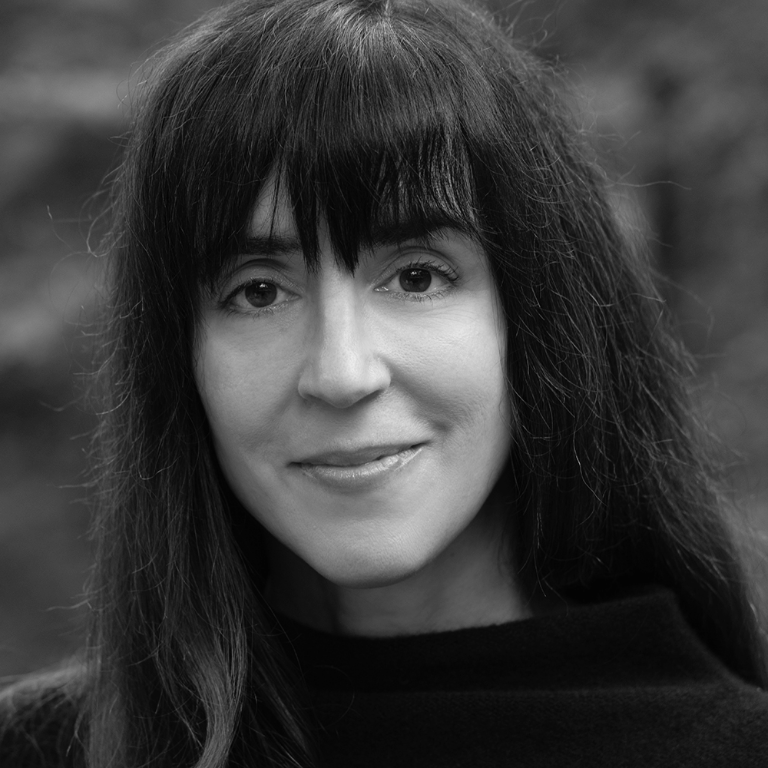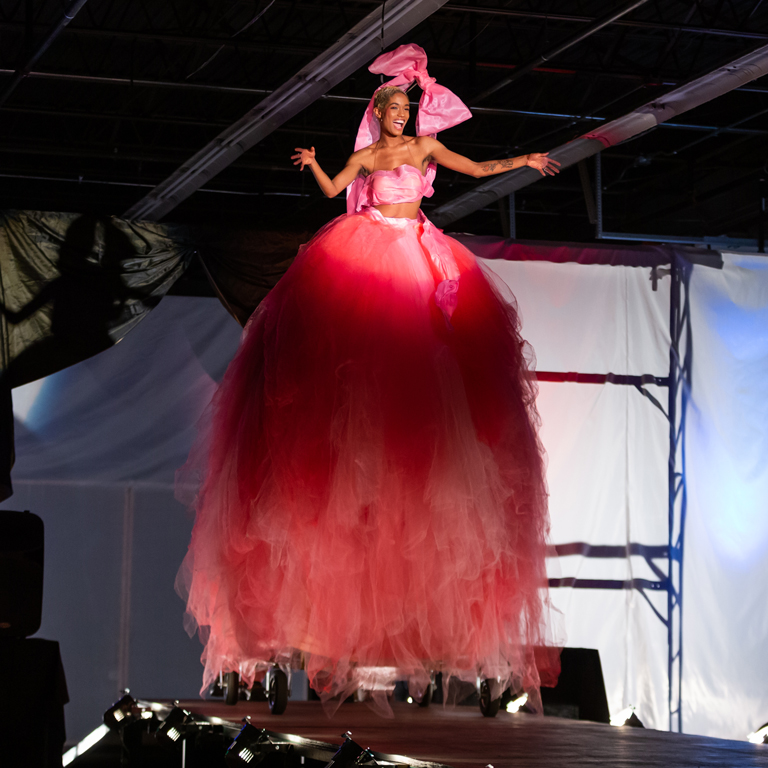Six Herron undergraduate students were chosen from 400 nominees for the 2022 Top 100 Awards. The IUPUI Office of Alumni Relations presents the awards each year to recognize academic excellence, campus leadership, and community engagement.
So, with a series of Q&As, we're shining a light on the accomplishments of Olivia Adam, Teaosha Cunningham, Denver Doub, Jessy Fearnow, Christopher Pack, and Ria Vavhal.
Christopher Pack, an Indianapolis resident, earned a Bachelor of Fine Arts degree in visual communication design (VCD) this spring. Over email, he discussed his service-oriented mindset, mentoring other students, and how resilience is critical to his personal and professional goals.
HERRON: You've been named to the Top 100 for the second year in a row. What does it mean to you to receive this honor?
CHRISTOPHER PACK: It is wonderful to know that my work and resilience throughout the years are appreciated. All the work I have done was carried out with a passion for positively impacting people. The fact that my accomplishments were noticed and awarded generously by the Top 100 judges is amazing. Being a Top 100 student twice means that the work that I do matters.
HERRON: As a recipient of the Norman Brown Diversity and Leadership Scholars Program scholarship, you participated in their leadership council and mentored other scholars in their first and second years. How has this experience helped support your growth, resiliency, and confidence?
PACK: The Norman Brown Scholars Program has contributed to my willingness to break out of my comfort zone on a social level. At first, I was quiet and to myself. However, meeting people that related to my life struggles helped me be more accepting of myself. This program made me realize that I am never alone.
By joining the Leadership Council with other program scholars, I hoped to contribute to this same mission. I wanted to help other minority students gain confidence in their own identities as they transitioned into adulthood.
HERRON: Tell us about your work with the Edna Martin Christian Center in Indianapolis as part of IUPUI's Sophomore Internship Program. What design solutions did you come up with to help raise public awareness of the center's resources?
PACK: The Edna Martin Christian Center in Indianapolis provides many resources to the Martindale-Brightwood community. They needed some help with raising public awareness of them.
One of the projects I worked on was a calendar listing all the events held at the center. These events focused on resource distribution and self-development. Another project was a fundraising postcard that aimed to inform the community about the opportunity to help raise money for the center. These funds would improve their current programs with additional support and resources.
My favorite design solution was a video promoting the Pivot Program, a youth self-development program. This project is special to me because my supervisor, Dale Crabtree, the creative director of Edna Martin Christian Center, did not provide me with any instructions. He gave me free rein to gather information and creatively represent the program in the best way I saw fit.
This Pivot Program helps young men with self-development skills through basketball, which the center uses as an outreach method. This project allowed me to fully use my creative abilities. I believed in myself as a creative person. I am grateful to Dale and the Edna Martin Christian Center for providing me with this opportunity.
HERRON: You were one of only two students in your class from Indianapolis Metropolitan High School to take courses at IUPUI through Special Programs for Academic Nurturing (SPAN), an accelerated college immersion program. Then, as a Herron student, you were a SPAN mentor. How did it feel to empower high school students in getting a head start on their own academic journeys?
PACK: It feels great to give these students a solid foundation to work with once they are officially in college. Dr. J.R. Russell, the SPAN program's director, wanted to give minority students the chance to attend college classes. He hoped to encourage them to consider attending college by providing them with the opportunity in high school. However, many people questioned whether the students would perform well.
When Dr. Russell told me this story, I realized the significance of my mentorship. When I accepted the position, I knew I would be assisting students in balancing high school and college simultaneously. I knew it would encourage them through those tough exams. I had no idea some people already doubted them without knowing their capabilities.
Because of that story, I knew that the bigger picture was that these minority students would already be judged. My responsibility was to help them through their coursework and gain confidence in themselves as people. Therefore, I would constantly speak with them about their dreams and goals. I would cheer them on and even find resources that would be of additional help to them.
HERRON: You also worked as a member of Herron's orientation team, assisting many incoming first-year students with their transition to college. What was the most important piece of advice you shared?
PACK: I believe the most crucial piece of advice that I shared was that they were not alone. In middle school and high school, my peers and I were often told how ruthless professors are in college. We were told that they do not want to hear about your life's struggles; they are just there for the money and do not have time to deal with nonsense. Many of my teachers practically told us that college professors do not care about their students.
However, when I got to know my college professors and worked with them, I realized that my high school teachers were wrong. Professors may have high expectations of their students, but that does not mean that they lack caring or empathy for them. I shared that if you show your professors that you are genuinely interested in succeeding in their course, they will be flexible and help in any way possible.
HERRON: Your work frequently revolves around others, and your peers, Herron staff members, and professors often comment on your service attitude and how you are constantly extending empathy to others. You mentioned that "authentic connections" drive your desire to positively impact the campus community. How has this philosophy influenced your own campus experiences and what you hope to do after graduating?
PACK: Excellent question! You have me reflecting on all my prior work. This philosophy has constantly placed me in positions where I thrive the most. These are positions in which I can interact with people, build connections, create positive experiences, and have an impact on others. I believe I learned this from my mom's way of life, in which she prioritizes others over herself. Now I'm doing the same thing with many other people. Plus, I've realized that I gravitate toward experiences that aim to positively impact others.


